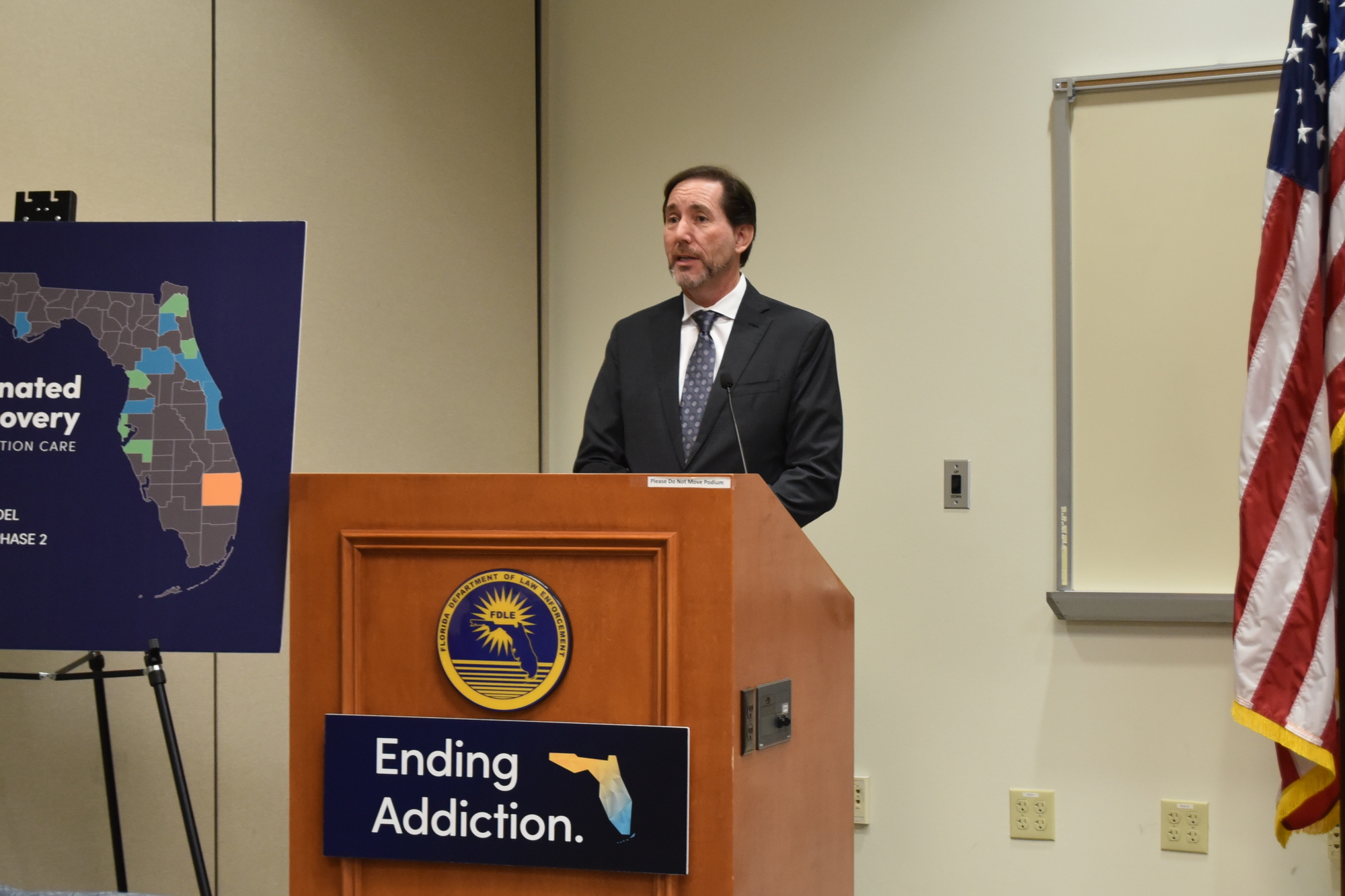What defines a specific, highly-regarded approach to a particular field, and what are its implications?
A specific, rigorous methodology, developed and refined through extensive research and practical application, forms the cornerstone of a dedicated approach. This specialized method is characterized by a distinct, comprehensive framework for understanding and addressing complex issues within a given domain. An example might be a set of principles, processes, and techniques uniquely employed in a field like medical research, artistic expression, or corporate strategy.
The methodology's importance lies in its ability to provide a structured and repeatable framework. This offers substantial advantages in terms of consistency, accuracy, and the potential for significant advancement. A well-defined methodology allows for improved reproducibility of results and enables the creation of a cumulative body of knowledge that leads to more sophisticated, sophisticated problem-solving. The methodologys historical evolution can also reveal important shifts in understanding and approach over time.
Moving forward, the article will delve into the applications and impacts of this specific approach in various contexts. The discussion will examine how this structured methodology can be applied to different situations and analyze its effectiveness and limitations. The analysis will move beyond the methodology itself to explore its influence on the wider field.
Core Duval
Understanding "core Duval" necessitates exploring its fundamental components. These aspects provide a framework for comprehending its multifaceted nature.
- Methodology
- Principles
- Techniques
- Application
- Impact
- Evolution
These six aspects, while distinct, are interconnected. Methodology provides the structure for implementing principles and techniques. Application demonstrates the practical impact, revealing how principles and techniques are put into practice. The evolution of these aspects reflects changes in the wider field and how core Duval has adapted. For example, changes in methodologies might reflect advancements in technology or shifts in theoretical understanding. The interplay of these aspects generates a profound understanding of a specialized approach. The interplay demonstrates how the theoretical elementsprinciples and techniquesare translated into real-world application, influencing its impact and consequently, its evolution.
1. Methodology
Methodology, in the context of "core Duval," refers to the systematic approach underlying its principles and techniques. This structured approach provides a framework for consistent application and facilitates the analysis of complex issues. A strong methodology ensures the reliability and reproducibility of results, fostering a deeper understanding within the field.
- Systematic Framework
The core methodology establishes a clear structure, guiding the process from initial assessment to final conclusions. This systematic framework facilitates the efficient collection and analysis of data, preventing arbitrary or biased interpretations. Examples of such frameworks include standardized experimental designs in scientific research or rigorous project management methodologies in business development.
- Defined Procedures
Specific, clearly defined procedures inherent in the methodology ensure consistency and reproducibility. These procedures encompass every step, from data gathering to interpretation, reducing potential errors and increasing the reliability of findings. Standardized clinical diagnostic procedures are one example of this: following a precise order of tests and evaluations enhances accuracy.
- Emphasis on Rigor and Consistency
The methodology emphasizes the importance of rigor and consistency in all aspects of the process. This approach minimizes errors and facilitates the validation of results, which is paramount in any field seeking to build upon existing knowledge. The scientific method, with its focus on repeatable experiments and verifiable conclusions, exemplifies this approach.
- Adaptability and Refinement
A robust methodology isn't static. It should be adaptable and subject to refinement as new knowledge and insights emerge. This iterative process ensures that the methodology remains relevant and effective over time. Scientific models are frequently refined as new data is collected and analyzed, leading to an improved understanding of the phenomena.
In essence, the methodology of "core Duval" forms the bedrock of its credibility and effectiveness. The systematic approach, defined procedures, emphasis on rigor, and ability to adapt contribute to the validity and reliability of findings, making it a significant asset in its field. Ultimately, this robust methodology empowers reliable results and a deeper understanding of the field it addresses.
2. Principles
The principles underpinning "core Duval" provide the foundational framework for its methodology. These principles dictate the core values and guiding tenets that shape the approach's application and impact. Their consistent adherence to these principles is crucial for maintaining the integrity and effectiveness of the overall methodology.
- Integrity and Objectivity
A core principle of "core Duval" is a commitment to integrity and objectivity. This manifests in the rigorous adherence to established procedures and the avoidance of bias or preconceived notions. In scientific research, this principle translates to ensuring data collection methods are impartial and the analyses are not influenced by desired outcomes. Maintaining objectivity is paramount in fields like legal proceedings where impartiality is crucial for fair and unbiased judgments.
- Comprehensive Assessment
Another crucial principle emphasizes a comprehensive assessment of the subject matter. It necessitates considering all relevant factors and perspectives, avoiding oversimplification or narrow interpretations. This principle is vital for thoroughness and accuracy, particularly in situations demanding a holistic view, like diagnosis in medicine, where neglecting pertinent symptoms can lead to misdiagnosis.
- Adaptability and Refinement
The principles of "core Duval" also acknowledge the need for adaptability and refinement. The approach recognizes that circumstances and situations evolve, necessitating adjustments to methodology. This adaptability ensures the approach's continuous relevance and effectiveness, reflecting the dynamic nature of many fields. In engineering, for instance, designs constantly evolve to incorporate advancements and address new challenges.
- Respect for Contextual Factors
Respect for contextual factors is integral to "core Duval." This entails considering the unique circumstances and conditions relevant to a particular situation. This consideration ensures that decisions and actions are not generic but address the nuances of specific cases. Examples of this could be seen in legal analysis where contextual factors play a crucial role in determining culpability.
These principles, when consistently applied, ensure the "core Duval" approach's enduring effectiveness and relevance. Their interconnected nature strengthens the methodology, guiding practitioners to maintain integrity, foster objectivity, and adapt to the dynamic contexts within which they operate.
3. Techniques
The techniques associated with "core Duval" represent the practical application of its principles and methodology. These techniques are integral to achieving desired outcomes, effectively translating the theoretical framework into tangible results. Their specific nature and application vary depending on the context, but their fundamental role remains consistent.
- Data Collection and Analysis Techniques
Techniques for data collection and analysis are central to "core Duval." Rigorous methodologies are essential, ensuring accurate, reliable, and objective data acquisition. Specific approaches might include surveys, interviews, experiments, or observational studies, depending on the field. The meticulous application of these techniques is paramount to informed decision-making.
- Problem-Solving and Decision-Making Approaches
Effective problem-solving and decision-making techniques are critical components of "core Duval." Strategies might include structured frameworks like SWOT analysis, root cause analysis, or decision matrices. These structured methodologies help ensure a comprehensive approach to addressing challenges, minimizing potential errors, and optimizing outcomes.
- Communication and Collaboration Techniques
Communication and collaboration techniques facilitate the effective dissemination of information and coordination within a given context. Strategies may encompass presentations, reports, or group discussions, allowing diverse perspectives to be shared and integrated towards a unified understanding and solution. These techniques are crucial for successful teamwork and progress.
- Implementation and Evaluation Strategies
Techniques for implementation and evaluation are crucial for measuring the impact and effectiveness of "core Duval." These include detailed project plans, monitoring systems, and metrics-based assessments of progress and achievement. Evaluation allows for ongoing refinement of techniques and continuous improvement.
The techniques of "core Duval" are instrumental in transforming the theoretical framework into practical application. Each technique contributes to the overall effectiveness and reliability of the approach. This comprehensive approach ensures the methodology's adaptability and broad applicability across diverse fields and contexts, making it a valuable tool for achieving desired outcomes.
4. Application
The application of "core Duval" translates its theoretical framework into tangible results. This practical implementation is crucial for assessing the effectiveness and utility of the approach within diverse contexts. The specific applications are varied, reflecting the adaptability and broad applicability of the core principles and techniques.
- Problem-Solving in Complex Systems
Application of "core Duval" to complex systems involves a structured approach to addressing multifaceted challenges. This includes a thorough analysis of interacting variables, potential risks and opportunities, and a comprehensive evaluation of potential solutions. For example, in urban planning, "core Duval" might involve intricate analysis of transportation networks, community demographics, and environmental factors to develop sustainable solutions. Failure to comprehensively evaluate these interconnected components may lead to ineffective or even counterproductive outcomes.
- Decision-Making in Uncertain Environments
"Core Duval" guides decision-making in uncertain environments through a systematic and structured approach. This methodology minimizes reliance on intuition or biases, promoting objective evaluations and robust plans. For instance, in scientific research, a rigorous experimental design based on "core Duval" allows researchers to draw reliable conclusions despite inherent uncertainties associated with empirical studies. A lack of structure in this context can lead to spurious correlations or unsupported conclusions.
- Facilitating Collaboration in Diverse Teams
"Core Duval" facilitates effective collaboration in diverse teams by providing a shared framework for understanding and working towards common goals. Clear communication protocols and a systematic approach to problem-solving foster constructive dialogues, reducing misunderstandings and increasing productivity. For example, in multinational business ventures, "core Duval" can provide a neutral platform for diverse perspectives, preventing misunderstandings stemming from cultural differences and disparate communication styles.
- Evaluating and Improving Organizational Performance
Application of "core Duval" allows for the assessment and enhancement of organizational performance. This structured approach allows for objective evaluation of processes, workflows, and outcomes, leading to the identification of areas for improvement and the implementation of targeted interventions. For instance, a company implementing "core Duval" to analyze customer service metrics may pinpoint bottlenecks in the customer support process and implement training programs to improve overall satisfaction ratings. Without such structure, organizations may miss opportunities for improvement and continue ineffective practices.
Across these applications, "core Duval" consistently demonstrates its value by providing a structured, reliable framework for navigating complexities. This structured approach leads to more robust and sustainable outcomes in a variety of fields, showcasing its adaptability and practical utility.
5. Impact
The impact of "core Duval" extends beyond the application of its methodology, principles, and techniques. It influences outcomes in various fields by establishing a structured approach to problem-solving, decision-making, and collaboration. Understanding this impact reveals the significant contributions of the approach to achieving meaningful results and driving progress.
- Improved Accuracy and Reliability
The structured methodology of "core Duval" fosters accuracy and reliability in outcomes. By establishing clear processes and procedures, potential errors are minimized, leading to more dependable results. Examples range from scientific research, where consistent experimental protocols yield reliable data, to engineering design, where precise calculations ensure structural integrity. The impact of this approach is a higher degree of trust in the outputs, leading to more confidence in the efficacy of solutions and strategies.
- Enhanced Efficiency and Productivity
Applying "core Duval" can significantly improve efficiency and productivity. The structured framework streamlines processes, reducing redundancies and wasted effort. This is evident in project management, where defined phases and deliverables enhance time management and resource allocation. The result is increased productivity and reduced turnaround times, directly impacting the overall effectiveness of efforts.
- Increased Consistency and Standardization
A notable impact of "core Duval" is the promotion of consistency and standardization across various contexts. The uniform application of defined methodologies and principles enhances comparability and reproducibility, allowing for wider knowledge application. Examples include medical diagnostic protocols, where standardized procedures ensure reliable diagnoses. The impact is the creation of robust, replicable systems that support consistent quality.
- Facilitating Adaptation and Innovation
"Core Duval" encourages adaptation and innovation by providing a framework for evaluating evolving circumstances and integrating new information. This adaptability enables solutions to remain relevant over time and fosters ongoing refinement. This approach is particularly beneficial in dynamic environments, like technology development, where continuous adaptation to advancements is crucial for success. The impact is the development of systems that remain relevant and effective through change and evolution.
Ultimately, the impact of "core Duval" lies in its ability to translate theoretical principles into practical solutions. This robust methodology empowers reliable outcomes, driving improvements in accuracy, efficiency, consistency, and adaptability. Its multifaceted impact strengthens the foundation for advancement and progress in diverse fields.
6. Evolution
The concept of "evolution" in relation to "core Duval" signifies the dynamic development and refinement of the approach over time. This evolution encompasses adaptations to new knowledge, changing contexts, and advancements in related fields. Understanding this aspect reveals the approach's enduring relevance and adaptability, highlighting its ability to remain effective and valuable despite evolving conditions.
- Methodology Refinement
The methodology of "core Duval" is not static; it evolves as new insights and discoveries emerge. Advancements in technology, data analysis techniques, or theoretical frameworks often necessitate adjustments and refinements. For example, the evolution of statistical methods in scientific research has directly influenced the ways in which "core Duval" methodologies are applied. The implications are the creation of more robust and precise applications, tailored to the advancements in the specific field.
- Adaptation to Contextual Shifts
As contexts change, "core Duval" may need to adapt its principles and techniques to remain relevant. Socioeconomic shifts, technological advancements, or cultural shifts can necessitate adjustments in the approach to ensure continued efficacy. For instance, a methodology for managing risk in financial institutions needs to adapt to changes in market conditions or regulations. The implications are the continued reliability of the approach under varying circumstances, ensuring its suitability to dynamic situations.
- Integration of Emerging Knowledge
"Core Duval" evolves by integrating emerging knowledge from related fields. This integration can broaden the approach's scope, leading to more comprehensive and nuanced applications. For example, the integration of insights from behavioral economics into business strategies could enhance "core Duval" methodologies for customer engagement, resulting in a wider array of tools and approaches. The implications are the ability to incorporate the latest discoveries, leading to more effective applications and a higher level of understanding.
- Refinement Through Feedback Loops
The evolution of "core Duval" can occur through systematic feedback loops. The application of the approach in various settings can reveal areas for improvement, which, in turn, drive the refinement of principles and techniques. By incorporating feedback on outcomes, efficacy, and limitations, "core Duval" can be refined to better address specific challenges and adapt to changing conditions. The implication is a dynamic process of continuous improvement, resulting in a more refined and effective approach to solving problems over time.
In conclusion, the evolution of "core Duval" is a critical element of its enduring value. The approach's ability to adapt and incorporate advancements ensures its continued efficacy and relevance in diverse situations. This adaptability highlights "core Duval's" enduring potential as a valuable tool for addressing a wide range of challenges in various fields.
Frequently Asked Questions about "Core Duval"
This section addresses common inquiries regarding "Core Duval," aiming to clarify its methodology, principles, and application. These questions and answers provide a concise overview, promoting a more in-depth understanding of the approach.
Question 1: What is the core methodology behind "Core Duval"?
"Core Duval" rests on a meticulously structured methodology. This framework ensures a consistent and rigorous approach across diverse applications. Key components include a systematic process for data collection and analysis, employing defined procedures to minimize potential errors. Further, the methodology emphasizes maintaining objectivity and avoiding bias, ensuring the reliability and validity of findings.
Question 2: What are the guiding principles of "Core Duval"?
Central principles of "Core Duval" encompass integrity, objectivity, and a commitment to comprehensive assessment. These guiding principles shape the application of the methodology, ensuring thoroughness and avoidance of oversimplification. Moreover, principles acknowledge adaptability and respect for contextual factors, highlighting the approach's suitability across diverse situations.
Question 3: How are techniques employed within "Core Duval"?
Techniques within "Core Duval" translate its principles into practical application. These encompass strategies for data gathering, analysis, problem-solving, and collaboration. Specific techniques often include established methods in their respective fields, such as statistical analysis, project management frameworks, and communication strategies. This combination of techniques aims to translate theory into actionable strategies.
Question 4: What impact does "Core Duval" have on outcomes?
The impact of "Core Duval" is demonstrable in improved accuracy, enhanced efficiency, and increased consistency in outcomes. The structured approach diminishes errors, streamlines processes, and promotes standardization, leading to more reliable results and greater effectiveness in various applications.
Question 5: How does "Core Duval" adapt to evolving contexts?
"Core Duval" evolves by integrating emerging knowledge and adapting its methodology to changing circumstances. This adaptability is crucial for maintaining relevance and effectiveness across diverse environments and fields. The integration of new insights and the refinement of techniques allow the approach to address emerging challenges and complexity.
These answers consolidate key aspects of "Core Duval," underscoring its application in problem-solving, decision-making, and fostering robust outcomes. The next section will explore practical applications of this methodology within specific contexts.
Conclusion
This exploration of "core Duval" reveals a comprehensive methodology characterized by a systematic approach to problem-solving and decision-making. Key elements include a defined methodology, fundamental principles emphasizing objectivity and comprehensiveness, practical techniques for application, and demonstrable impacts across various fields. The evolution of this approach, incorporating advancements and adapting to contextual shifts, highlights its sustained relevance and efficacy. The framework's adaptability, coupled with its focus on accuracy and efficiency, positions "core Duval" as a valuable tool for navigating complexities and achieving desired outcomes.
The conclusions drawn from this examination underscore the importance of structured methodologies in achieving reliable outcomes. Further research and practical application within diverse contexts will undoubtedly yield a deeper understanding of the approach's limitations and potential for optimization. By consistently refining and applying the principles of "core Duval," the field can potentially unlock further advancements and achieve new levels of effectiveness in problem-solving.


